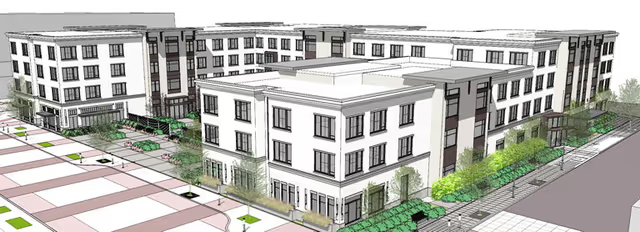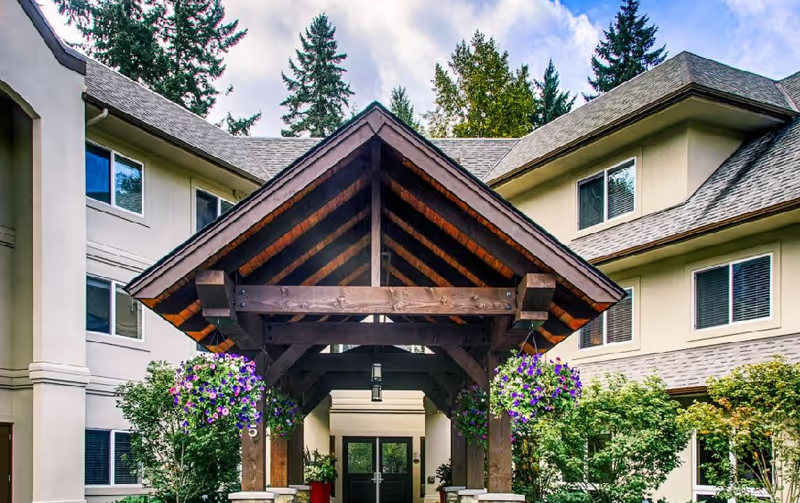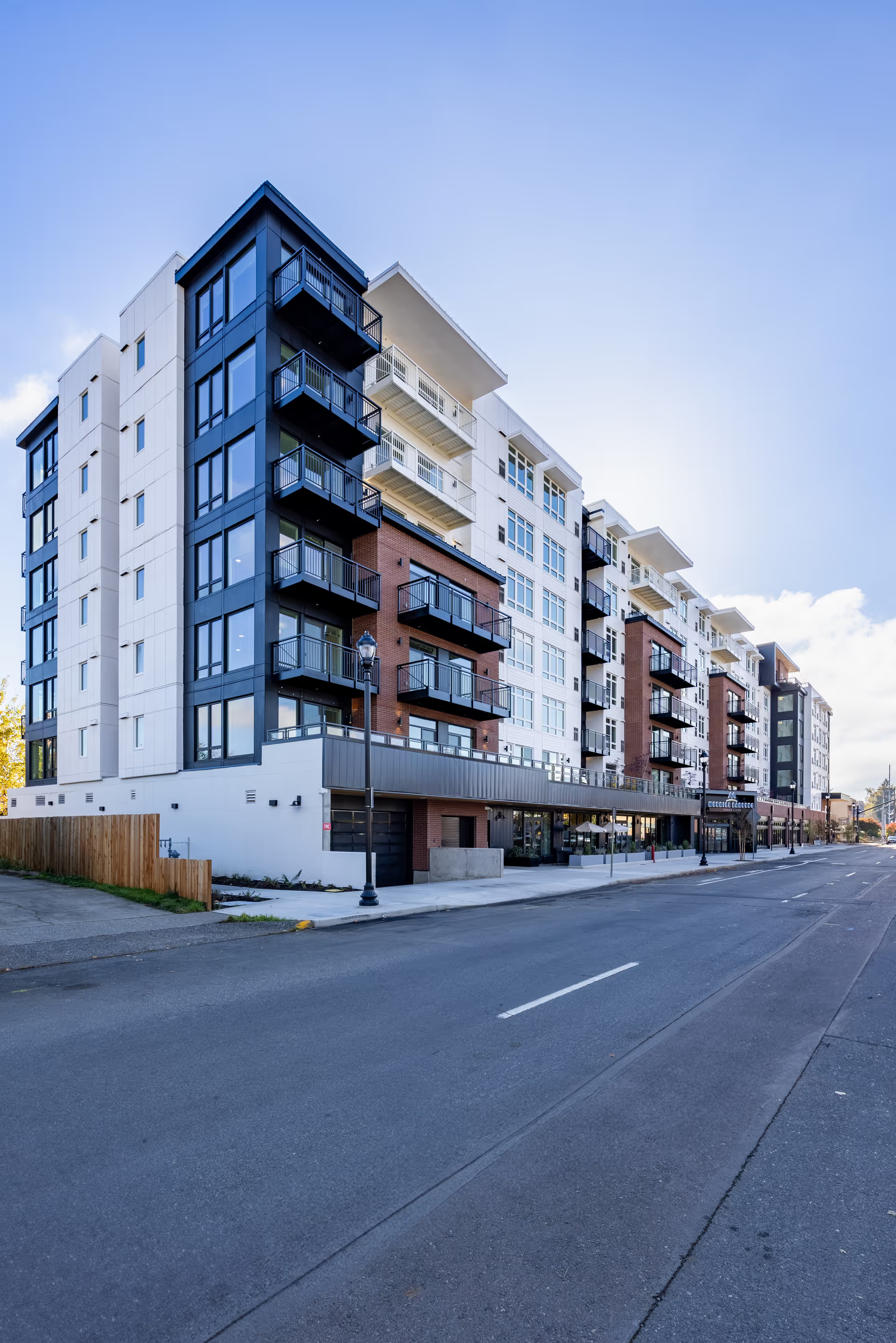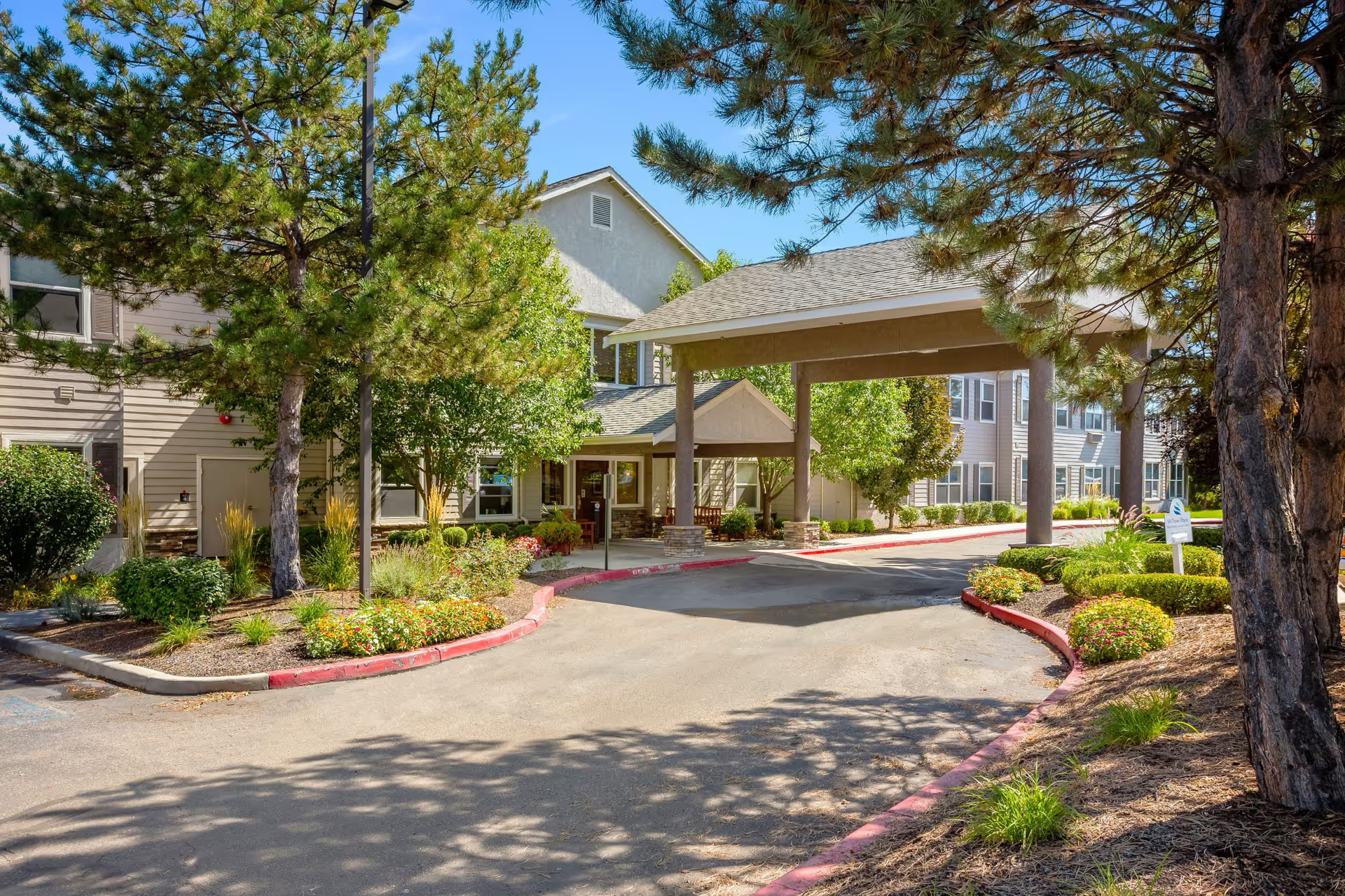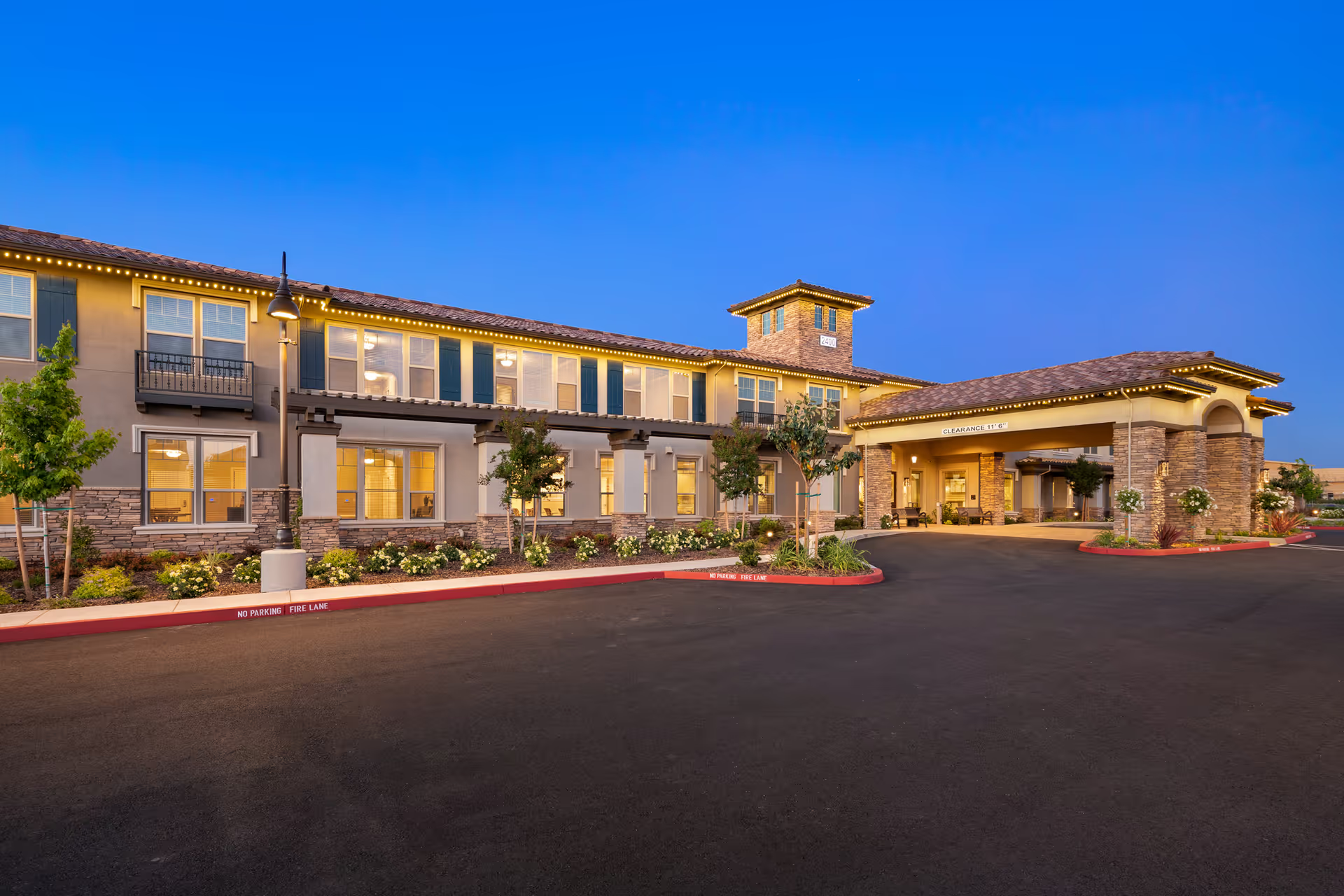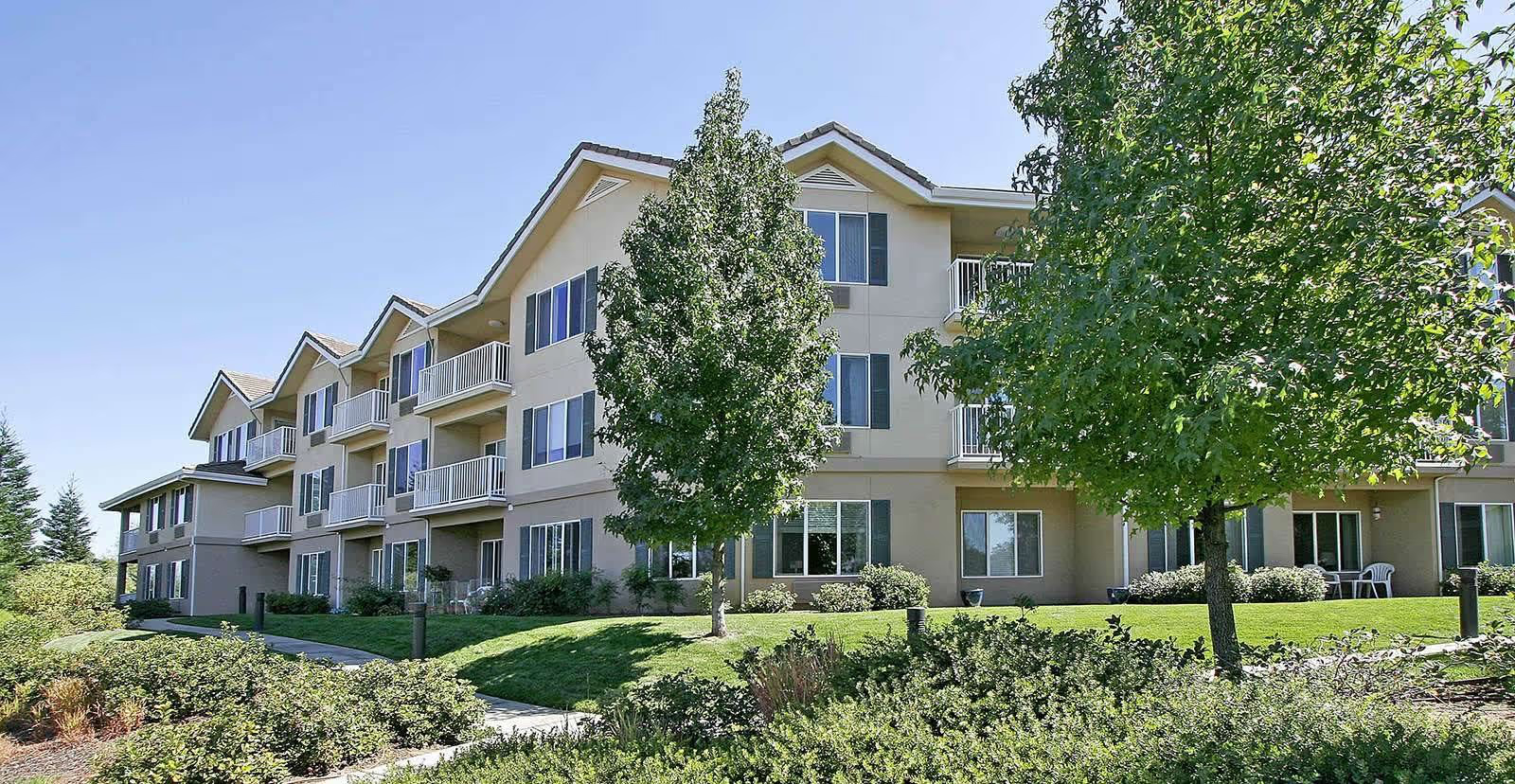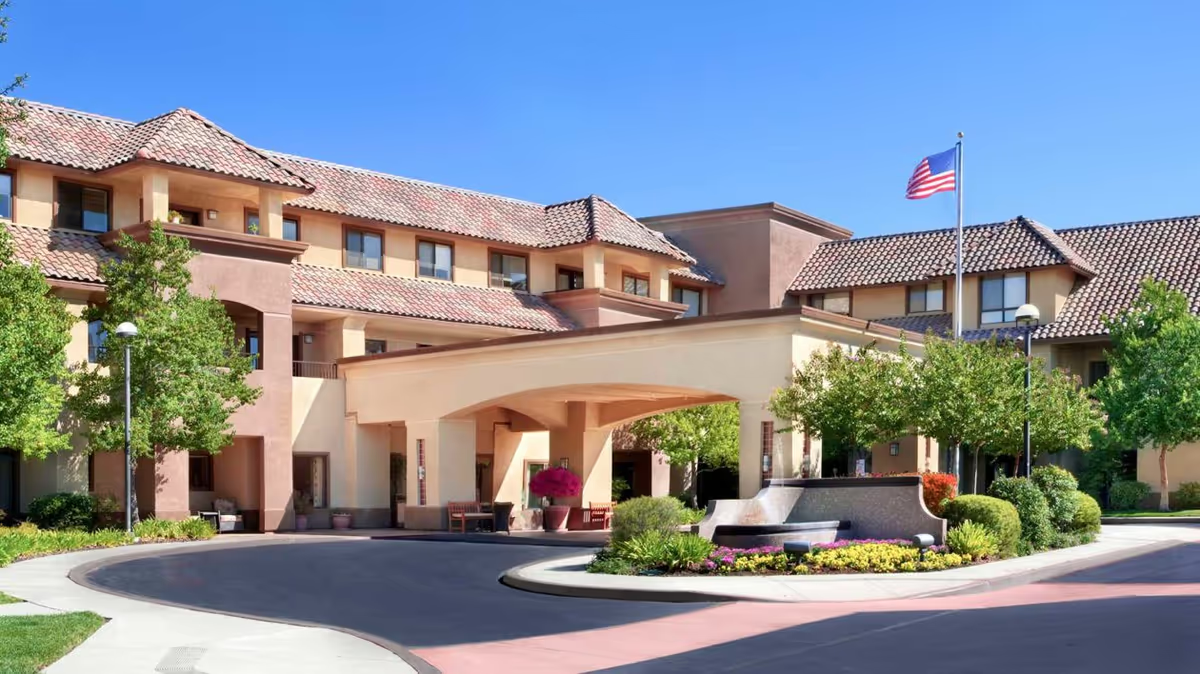Overall sentiment in the reviews for Prestige Senior Living Auburn Meadows is mixed but leans positive on staff compassion, resident social life, and aspects of the facility. A large proportion of reviewers emphasize that caregivers, nurses, activity staff and some leadership go out of their way to provide individualized, affectionate care; multiple families describe staff who treat residents like family, ‘saved’ a resident, or provided hospice care that exceeded expectations. Memory care receives repeated praise for one-on-one attention, proactive resident evaluation, and a secure, knowledgeable approach. Many reviewers report that their loved ones are happy, engaged, and comfortable in the community.
Facility and amenities are frequently cited as strengths. Reviewers note clean buildings, well-maintained landscaping, attractive grounds with walking areas, and renovated interior spaces that feel homey. Apartment features praised include spacious studios, kitchenettes or full appliances in some retirement units, private bathrooms, good-sized showers, laundry access, on-site maintenance, and weekly housekeeping. The campus is generally described as safe, with hospice and memory care available in the same building—a convenience repeatedly appreciated by families. The site’s location near a hospital and proximity to family members are additional positives cited.
Dining and activities form a mixed but important theme. Many residents and families applaud the food, large portions, and an engaged chef who involves residents; weekly grocery/dollar-store trips, holiday celebrations, movie nights, game rooms, craft programs, pool and shuffleboard, and regular outings via shuttle/bus are highlighted. Pre-COVID activity offerings were robust and several reviewers report that programming is returning. However, multiple reviewers raise concerns about inconsistency in food quality, overly carbohydrate-heavy menus, lack of diabetic or lower-carb options, and a perceived monotony of meals for some. COVID restrictions interrupted activities and some staffing losses impacted programming; several reviewers observed that activity staff turnover or slow hiring has led to a temporary reduction in offerings.
Care quality is a central, nuanced issue: many families praise attentive, personalized caregiving, frequent check-ins, nurse practitioner visits, and strong hospice/memory care. At the same time, understaffing and CNA turnover are persistent complaints tied to inconsistent care delivery—examples include missed medications, variability in caregiver skill and engagement, and the need for family advocacy to ensure timely or complete services. Some reviewers explicitly report medication errors or that care levels charged (level-two) did not match services rendered. A few families also expressed concerns about whether the facility could meet complex medical needs (e.g., advanced dementia care, colostomy management), recommending caution for residents with high-level medical needs.
Management, operations and business practices show variability across reviews. Positive reports describe responsive admissions staff, expedited move-ins, and staff who coordinate well with physicians and families. Negative reports cite management turnover, poor communication, slow administrative follow-through (e.g., waiting on faxed doctor information or Medicaid paperwork), pushy sales tactics and upselling to higher levels of care, deposit/refund disputes, and frequent rate increases. These operational issues intensify the burden on families who sometimes need to advocate to ensure promised services. Several reviewers noted that while the small, close-knit staff can be an advantage for relationships, it also makes the community vulnerable when employees leave.
Safety, maintenance and physical plant concerns are mixed. While many reviewers praise the grounds and remodeled spaces, others describe dated, dark, or dingy areas, banged-up woodwork, and spots still undergoing renovation. Reported safety issues include unsecured heavy furniture in hallways during construction and outdoor patios used by smokers, which some families found undesirable. Logistical limitations were also noted: single elevator service in parts of the building, limited parking, long waiting lists, and occasional lapses in housekeeping consistency.
In conclusion, Auburn Meadows is frequently described as a warm, community-oriented place with many devoted caregivers, strong hospice and memory care elements, good amenities, and a generally pleasant environment. Families seeking a community with caring staff, social programming, shuttle services, and affordable/Medicaid options may find it very appealing. However, prospective residents and families should be mindful of recurring concerns: staffing shortages and turnover, inconsistent communication and management reliability, spotty food/menu variety for special diets, and occasional maintenance or safety issues. Those considering Auburn Meadows would be well advised to ask specific questions about staffing ratios, recent turnover, how dietary needs (e.g., diabetes) are accommodated, medication management protocols, current activity schedules post-COVID, any ongoing construction and expected completion, and the facility’s policy on care-level assessments and billing to ensure expectations match services.
